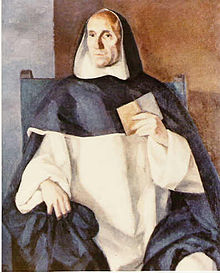
Franciscus de Vitoria, the leading
scholastic monk and thinker in Discovery Era (16th century)
Salamanca, Spain, delivered three important lectures on the subject
of Indian rights, entitled "On the Indians Lately
Discovered." Vitoria was the most important Thomastic
humanist in Spain, a Dominican scholar and the first Spanish
thinker to apply Aquinas' natural law discourse to the treatment of
Indians in America.
click here for more
Vitoria took the first steps
toward a comprehensive international world order, a law of nations
that would regulate aspects of the relationships between emerging
independent states and colonizing monarchs. It is said that
his legal work was the midwife that delivered Europe out of the
theocratic bondage of the Middle Ages. In summary, he
proposed:
1) native
people have natural legal rights as free and rational people
2) the pope's
grant of title in America was baseless and could not dispossess the
Indians of their inherent rights as human beings.
3)
transgressions of the universally binding norms of the law of
nations by Indians might justify intervention by conquest and
colonization by a Christian nation.
By arguing that
Indians had natural law rights, Vitoria was breaking new ground in
the legal world. But by arguing that pagan belief systems
would give the European monarchs the rights to conquer Indians for
the purpose of baptism, was a throwback to the thinking of the
Crusades. Vitoria's thinking became the background against
which all Christian natural-law traditions would be prosecuted
against Indian people in the new world for the next several
centuries.
Related People
Related Events
Related Flashpoints